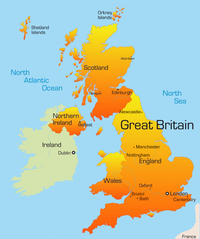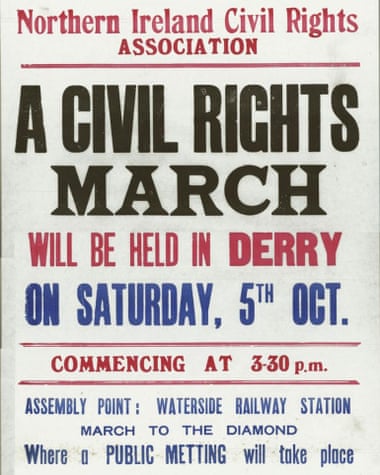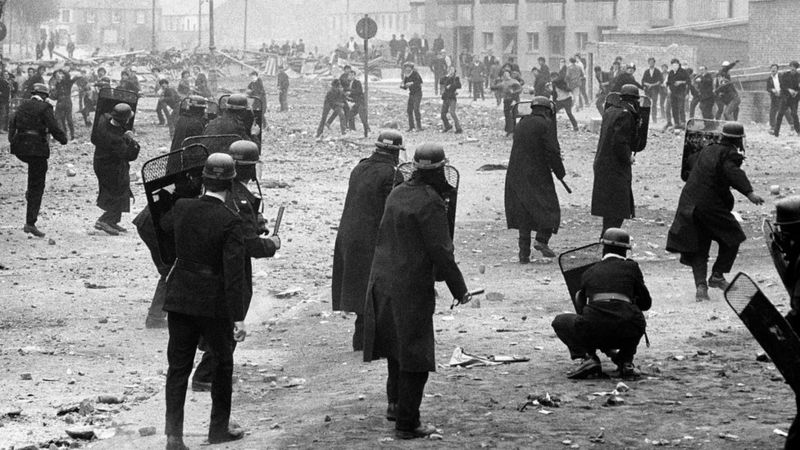At first the civil rights movement consisted of peaceful protests, but in the 1960s they quickly turned bloody. In 1969, the London government decided that the Northern Irish government could no longer control the situation themselves and deployed the British army. Immediately, reforms were proposed to remove British troops from Irish soil. The IRA, Irish Republican Army, who believed in one island, one country, attempted to control Northern Ireland with violence. In March 1972, the Government of Ireland Act passed, allowing the London Parliament to abolish the Northern Irish government. Northern Ireland was to be governed from England.

Map of the United Kingdom. (Denver Public Library)
In 1921, Ireland became a republic and finally split from England after decades of tension. Northern Ireland stayed with England since the 65% Protestant majority wished to continue with Protestant England. Ever since then, the political tensions were high. Tensions rose more when the Catholic church discouraged contraceptives causing the Catholic population to grow to a near minority to the Protestants in Northern Ireland.
"They breed like rabbits and multiply like vermin."
~ Ian Paisley, a Protestant religious leader in Northern Ireland, on Catholics, in 1969 (The Irish Times)
The Protestants had gained control of the Northern Irish government, keeping it close with England, social imbalances occurred. Catholics were often deprived of employment, education, voting rights and other opportunities. Since the Catholics felt and were thought of as less than, relationships were strained between political groups, colleagues and the entire populations. Although the two groups did not often live in the same communities, attend the same schools or interact in the same social groups, there was a constant feeling of a power unevenness.

A poster announcing the Derry march that ended
in disaster. (Nirca / Museum of Free Derry)
